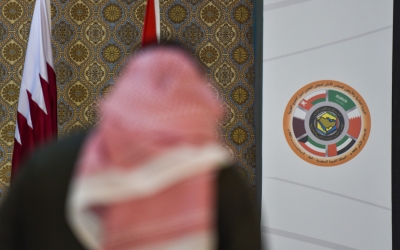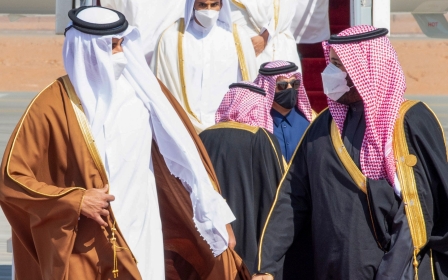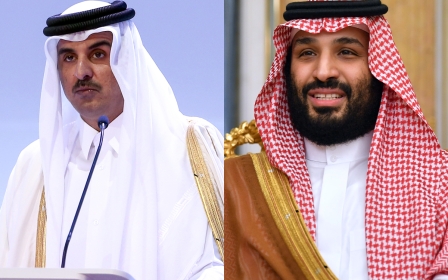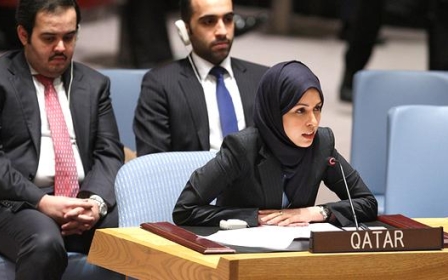Qatar blockade: Gulf states sign 'solidarity and stability' deal
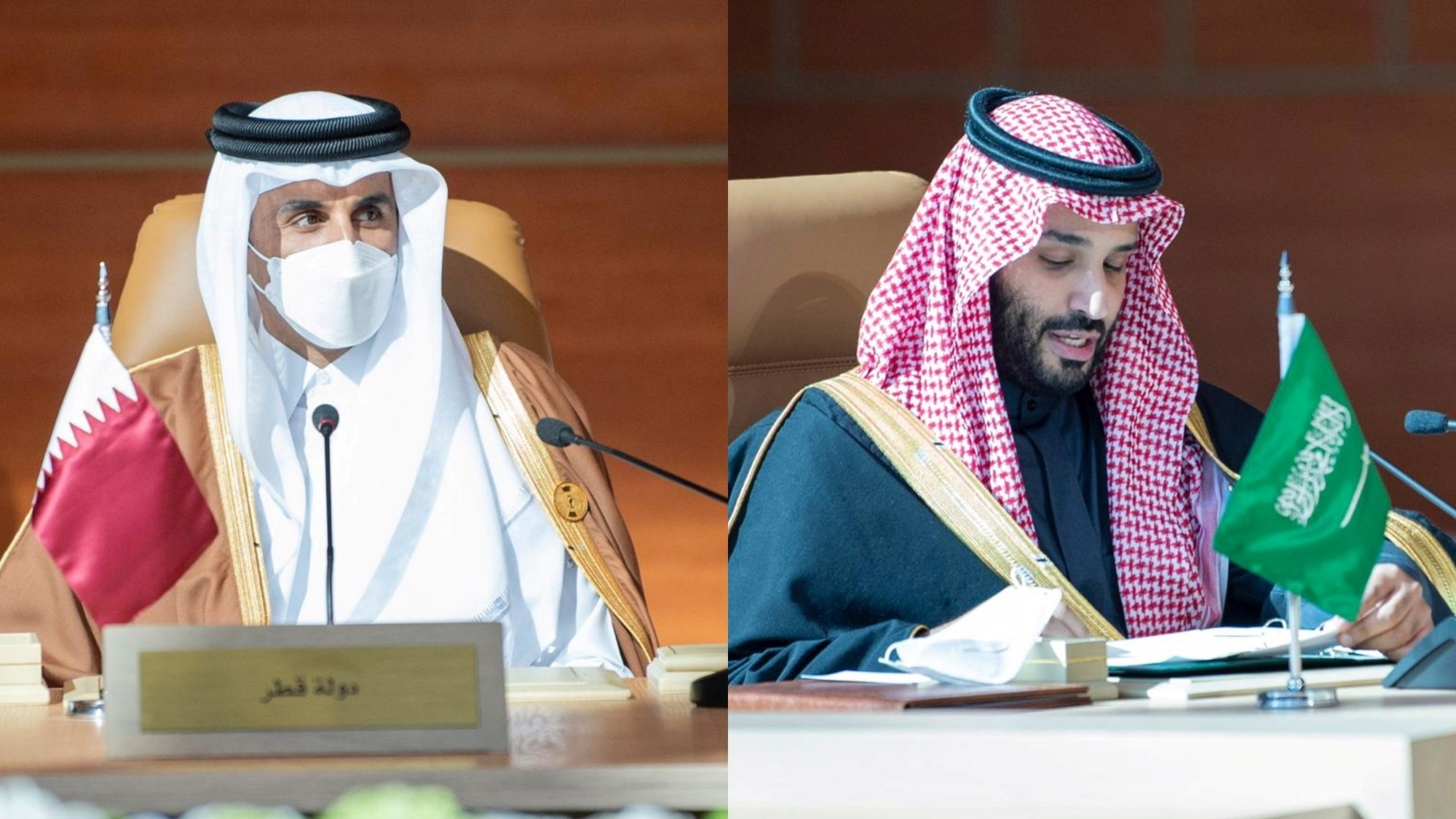
Saudi Crown Prince Mohammed bin Salman said on Tuesday that Gulf leaders signed an agreement to end a three-and-a-half year-long blockade against Qatar.
MBS, as the Saudi prince is often referred to, thanked the United States and Kuwait for mediating the "solidarity and stability" agreement.
"These efforts helped us reach the agreement of the al-Ula statement that will be signed at this summit, where we affirm our Gulf, Arab and Islamic solidarity and stability," he said.
Saudi Arabia's Foreign Minister told a press conference later that full ties had been restored.
"What happened today is... the closure of the folder of all points of difference and a full return of diplomatic relations," Prince Faisal bin Farhan said.
Earlier on Tuesday, MBS was seen embracing Qatari Emir Sheikh Hamid bin Al Thani as the latter arrived the city of al-Ula for the Gulf Cooperation Council summit.
In 2017, Saudi Arabia, the United Arab Emirates, Bahrain and Egypt severed diplomatic, trade and travel ties with Qatar over claims that Doha supported terrorism, a charge the country has long denied.
On Monday, Riyadh announced plans to reopen its airspace, sea and land border to Qatar.
Kuwaiti Foreign Minister Ahmad Nasser al-Mohammed al-Sabah had announced the breakthrough on Monday but had not elaborated on whether Qatar and Saudi Arabia's preliminary agreement would extend to the other blockading countries - the UAE, Bahrain, and Egypt.
On Monday, UAE Foreign Minister Anwar Gargash described the agreement as heading in the "right direction" on Twitter, without going into further detail.
US White House senior advisor and President Donald Trump's son-in-law Jared Kushner was in attendance at the summit on Tuesday.
Other GCC members expected to be present al-Ula include Bahrain, Kuwait, Oman and the UAE.
The Saudi crown prince welcomed the breakthrough in the impasse on Monday, saying the kingdom's approach was based on enhancing "the ultimate interests of the Gulf Cooperation Council member states and the Arab countries".
"[The] Crown Prince reasserted that the upcoming GCC summit shall be a summit to close the ranks and unify the stance and to enhance the march of the good and prosperity," the kingdom's official news agency SPA said in a statement.
Diplomats and analysts say that Saudi Arabia was pushing for a deal hoping it would show US President-elect Joe Biden - who will be taking office later this month - that Riyadh is open to dialogue.
"Despite the purported rapprochement between Gulf parties, it is worth noting that this is seemingly influenced by a desire to preempt pressure from an incoming Biden administration, more than a genuine commitment to conflict resolution," Emadeddin Badi, a nonresident senior fellow at the Atlantic Council, told Reuters.
"As such, the detente within the GCC is very unlikely to significantly affect geopolitical dynamics beyond the Gulf."
Middle East Eye delivers independent and unrivalled coverage and analysis of the Middle East, North Africa and beyond. To learn more about republishing this content and the associated fees, please fill out this form. More about MEE can be found here.


